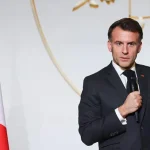As pressure mounts on the Minister of Health, Kwaku Agyeman-Manu, to resign from his position, there has been an increasing and louder defence from members of the governing party, including those in the upper echelon of power – the Cabinet.
Agyeman-Manu had agreed to a $19 price-per-unit for 300,000 doses of Russia’s Sputnik V with an intermediary. The original ex-factory price-per-unit had been $10 and so when the news broke, many Ghanaians complained about the clear exorbitancy.
The reported characteristic dubiousness of the intermediary and his charge had made the deal unpopular. The minister later said the deal had been cancelled and no money had been paid to the intermediary who had shipped 20,000 Sputnik V vaccines to Ghana.
But it turned out, through an ad-hoc parliamentary probe, that Agyeman-Manu had not represented accurately what had transpired since about $2.8 million had actually been wired to the intermediary.
On Monday, August 9, Minister of Finance Ken Ofori-Atta, described the public discourse surrounding the minister’s gaffes as conversations with “so little empathy”.
“[Agyeman-Manu] had no other choice with the way he acted… and the issue of if we will, we get our money back? We will. It will be my responsibility to get the money back, and I will,” Ofori-Atta explained in an interview.
But the Finance Minister’s arguments fetched evidence from the larger plane of global politics. According to the man who is an experienced international banker, Africa continues to be handed the worst possible deals in the global negotiations on COVID-19 vaccines, and this fact has its toll on individuals who are empowered to act in the interests of citizens.
Referring to wealthier nations, some of whom have secured more vaccines than they immediately need, Ofori Atta reprimanded: “You’ll dare to ask me about me paying more for vaccines when you are hoarding those vaccines, and I have one out of 100, and you have 80? And you sit there and ask, why are you doing this? What’s the moral authority?”.
For this reason, Ofori-Atta is not happy that Ghanaians are not considering what his colleague “might have been going through when you have been sworn in with a mandate to protect the health of people”.
Ofori-Atta’s appeal to the global situation in defending Agyeman-Manu certainly has some merit. The quest for vaccines has been, after all, a rat race where the promised cooperation on the basis of our common humanity is not happening.
The pandemic was analysed by optimists as an opportunity for those with genuine political and economic power to remake the terms of global problem-solving. However, profit and protectionist foreign policies are taking precedence over humanitarianism.
But Agyeman-Manu’s self-inflicted pressure is still very hard to understand in spite of whatever is happening in global politics. Under oath, the 65-year-old misled Ghanaians to believe he had not sanctioned payment to Emirati intermediary, Sheikh Ahmed Dalmook Al Maktoum.
What the minister said before the parliamentary committee has been equated to lying by most Ghanaians who have had their say on social media, at least. But according to the Minister for Parliamentary Affairs and Member of Parliament (MP) for Suame, Osei Kyei Mensah-Bonsu, these fellow Ghanaians are mistaken.
Mensah-Bonsu made an intriguing case over the weekend that the ad-hoc committee’s report came out:
I called the Chairman [Alex Afenyo-Markin] and Vice Chairman [Mintah Akandoh], and they both disagreed on what really happened at the committee level. I called the clerk of the committee, and she said she doesn’t really remember what exactly happened, but she will call for the recording. She did, and came to inform me in the presence of the Chairman and Vice-Chairman that indeed the minister did not make a categorical statement, and that the minister said to the best of his knowledge no payment had been made.
The Suame MP’s defence of his colleague attempts to find a foundation in the wobbly capacity of Agyeman-Manu’s psychological faculties, as well as in the flexibility of the latter’s language. Simply put, Mensah-Bonsu hopes Ghanaians do not condemn the Health Minister for lying because the Health Minister sought a caveat – the fallibility of his memory.
This argument, however, undercuts two things. First, it paints the portrait of a Health Minister who is not on top of issues in his ministry at a time of a global pandemic. If he cannot be sure they have paid for vaccines during a deadly pandemic, what can he be sure of?
Second, Ghanaians would also ask how many times Agyeman-Manu would fail to recollect important details during this pandemic. The issue of Frontier Healthcare Services Limited at the Kotoka International Airport (KIA) comes to mind.
Apart from this, Mensah-Bonsu’s argument is not logically consistent with Ofori-Atta’s even though both men are looking to save a friend.
While Ofori-Atta thinks Agyeman-Manu’s good intentions should save him, Mensah-Bonsu argues that the fact that the Health Minister “forgot” he paid the money should spare him the public pressure.
The Finance Minister is relying on Agyeman-Manu’s supposed good intentions so as to get the Health Minister off the hook. The Parliamentary Affairs Minister is relying on Agyeman-Manu’s fallible memory to get the Health Minister off the hook.
These two positions are incompatible. He either paid the money with good intentions and knew he paid the money with good intentions or he forgot (or was not sure) he paid the money (with good intentions). It cannot be both.
But others, including MP for Effutu, Alex Afenyo-Markin and the Head of Legal Affairs at the Ministry of Health, Alhaji Inua Yusif, have both moved in defence of the Minister of Health.
They too have offered variations of Ofori-Atta and Mensah-Bonsu’s arguments with Yusif writing that the payment of the money to the Emirati intermediary was “new information has come to the notice of the Ministry of Health” after Agyeman-Manu’s appearance before the Public Accounts Committee.
Meanwhile, a letter, dated August 5, 2021, by Sheikh Al Maktoum to the health minister, cited by The Ghana Report, indicates that the Agyeman-Manu wrote to the businessman for a refund of the amount paid for the undelivered doses of vaccine.
In response, the Sheikh said he would refund the balance of $2,470,000 from the $2.8 million that the country paid to him, and asked the ministry to confirm the difference for onward payment.
Agyeman-Manu has since gone on a two-week-long leave that, according to the presidency, started at the end of last week.
















